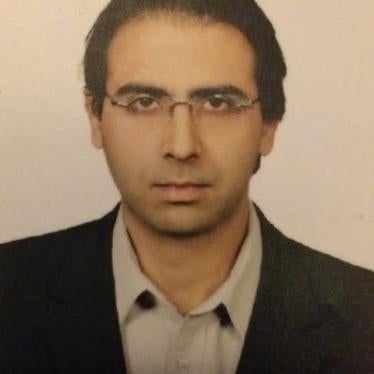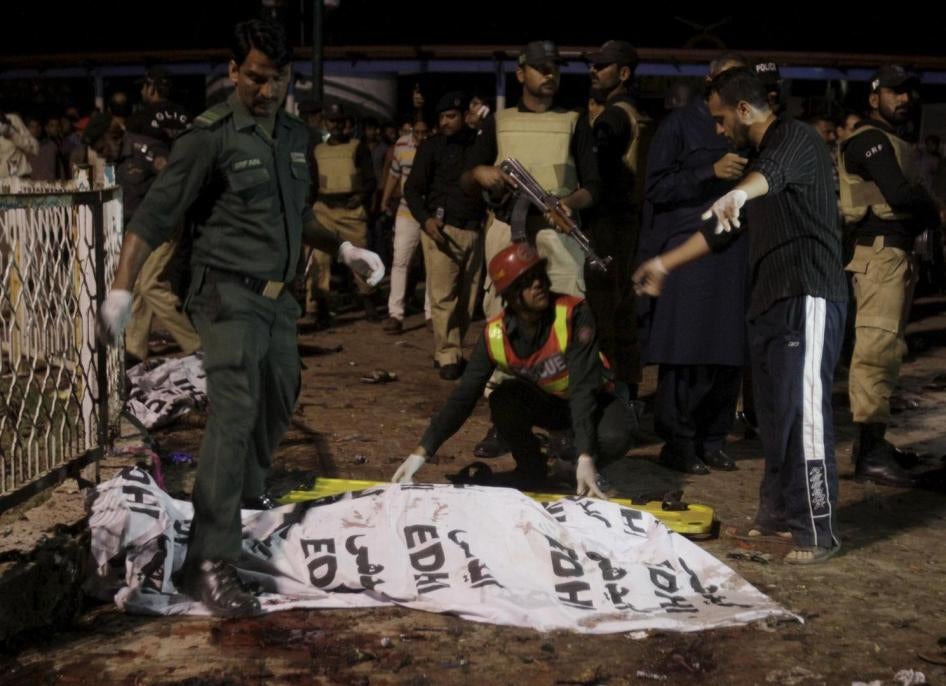The apparent objective of the March 27 attack in Gulshan-i-Iqbal Park was to target families belonging to a marginalised Christian community on Easter Sunday. The park is in one of the few public spaces where admission is free and thus accessible to the working class population. The suicide bomber seems to have targeted the children’s play area. At least 29 children were among the more than 70 people killed in the bombing. Pakistan, once again, is burying small coffins. This is depraved beyond words.
These and numerous other attacks targeting religious minorities, or just ordinary people in markets and mosques, have killed or injured thousands of Pakistanis. Various militant groups are blamed, some of them factions of the Pakistani Taliban. “It was our people who attacked the Christians in Lahore, celebrating Easter,” Ehsanullah Ehsan, a spokesman for the Jamaat ul-Ahrar, declared after the bombing, taking responsibility for that attack and warning that the group “will carry out such attacks again”. The targets may have been Christians, but the victims were Pakistanis — men, women and children; Christian and Muslim. Pakistan is caught up in a war over ideology, but the government fails to understand the nature of the battle.
But Pakistan is also war-weary, with many people increasingly desensitised to violence and taking pride in ‘resilience’, even justifying the death of children by calling them ‘martyrs’. However, Lahore has largely remained at the periphery of the conflict. When bombs go off in Khyber-Pakhtunkhwa (K-P) and in the tribal areas, it has become just a sound byte, perhaps a news feed scrolling on TV screens, with the often unsaid assumption that since those are ‘conflict areas’, it is expected that there will be bombings and ordinary people will die.
So even as Lahore was in mourning, with people lining up at hospitals to donate blood to those injured, Islamabad was yet again hostage to a mob protesting their kind of ‘martyr’. Thousands of members of religious parties and groups staged a four-day sit-in in front of parliament, protesting the execution of Mumtaz Qadri, the police constable who assassinated Punjab governor Salmaan Taseer for speaking against the blasphemy law. They were demanding assurances that the blasphemy law will not be amended and demanding the execution of anyone convicted of blasphemy. These protesters were possibly armed and demonstrably violent. The army was called to deal with the situation, and for four days, the Pakistani capital was held in a tense stand-off.
One of their primary demands was to execute another Christian, a peasant woman called Aasia Bibi. She is the first woman in Pakistan’s history to be sentenced to death for blasphemy, though others have been convicted and given lesser sentences.
The events of Lahore and Islamabad are not completely distinct. The killing of members of working class minority communities in Lahore, and the demand to execute a poor minority woman in Islamabad, originate from the same ideology. These victims of militant attacks and blasphemy law persecutions are often from the marginalised sections of Pakistani society, Muslim and non-Muslim, Shia and Sunni.
On March 28, Prime Minister Nawaz Sharif addressed the nation and re-affirmed his resolve to fight sectarian violence. But that was quickly followed on March 30 by a government concession to many of the key demands of the pro-Qadri protesters, including pledges not to amend the blasphemy provisions and not to show mercy to those convicted under them. In doing so, the government agreed to perpetuate the injustice inflicted by the misuse of Pakistan’s blasphemy laws.
The Sharif government seems to be utterly helpless in the face of those who cheer for murder. After the horrific attack on the Army Public School in Peshawar, in December 2014, the government said that it was a “watershed” moment in transforming policy on engaging with favoured, and not so favoured, militant groups. However, it then approached religious extremism as a ‘technical’ question of the government’s capacity to respond. It adopted overly broad rights-violating measures, such as military courts and the restoration of capital punishment.
But as long as the government takes the role of an actor upholding discriminatory laws, no National Action Plan (NAP) against militancy is likely to succeed. The claims of NAP’s success are dampened by reports that Christians are fleeing the country in fear, risking hunger, sickness and arrest abroad.
Laws that permit discrimination against religious minorities, and the federal and provincial governments’ failure to address religious persecution by religious groups, facilitate atrocities against these oppressed groups and others who are vulnerable. The Pakistani government cannot vow to fight one group of extremists effectively while surrendering to another. Equal citizenship, due process and impartial dispensation of justice will have to be the cornerstone of any meaningful counter-terror plan.










